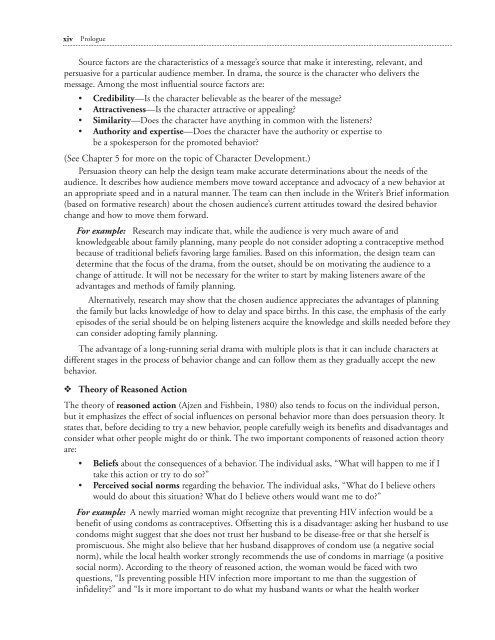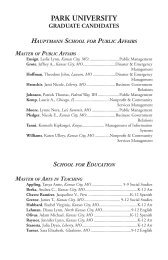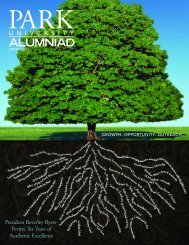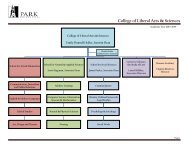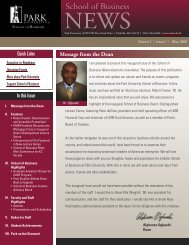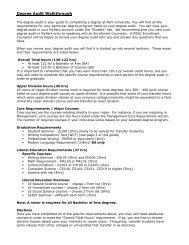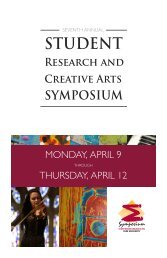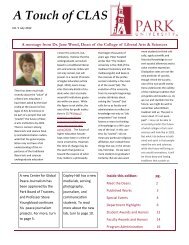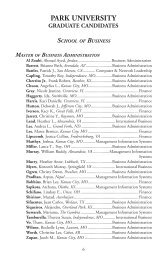How to Write a Radio Serial Drama for Social Development- PDF
How to Write a Radio Serial Drama for Social Development- PDF
How to Write a Radio Serial Drama for Social Development- PDF
You also want an ePaper? Increase the reach of your titles
YUMPU automatically turns print PDFs into web optimized ePapers that Google loves.
xiv<br />
Prologue<br />
Source fac<strong>to</strong>rs are the characteristics of a message’s source that make it interesting, relevant, and<br />
persuasive <strong>for</strong> a particular audience member. In drama, the source is the character who delivers the<br />
message. Among the most influential source fac<strong>to</strong>rs are:<br />
• Credibility—Is the character believable as the bearer of the message<br />
• Attractiveness—Is the character attractive or appealing<br />
• Similarity—Does the character have anything in common with the listeners<br />
• Authority and expertise—Does the character have the authority or expertise <strong>to</strong><br />
be a spokesperson <strong>for</strong> the promoted behavior<br />
(See Chapter 5 <strong>for</strong> more on the <strong>to</strong>pic of Character <strong>Development</strong>.)<br />
Persuasion theory can help the design team make accurate determinations about the needs of the<br />
audience. It describes how audience members move <strong>to</strong>ward acceptance and advocacy of a new behavior at<br />
an appropriate speed and in a natural manner. The team can then include in the <strong>Write</strong>r’s Brief in<strong>for</strong>mation<br />
(based on <strong>for</strong>mative research) about the chosen audience’s current attitudes <strong>to</strong>ward the desired behavior<br />
change and how <strong>to</strong> move them <strong>for</strong>ward.<br />
For example: Research may indicate that, while the audience is very much aware of and<br />
knowledgeable about family planning, many people do not consider adopting a contraceptive method<br />
because of traditional beliefs favoring large families. Based on this in<strong>for</strong>mation, the design team can<br />
determine that the focus of the drama, from the outset, should be on motivating the audience <strong>to</strong> a<br />
change of attitude. It will not be necessary <strong>for</strong> the writer <strong>to</strong> start by making listeners aware of the<br />
advantages and methods of family planning.<br />
Alternatively, research may show that the chosen audience appreciates the advantages of planning<br />
the family but lacks knowledge of how <strong>to</strong> delay and space births. In this case, the emphasis of the early<br />
episodes of the serial should be on helping listeners acquire the knowledge and skills needed be<strong>for</strong>e they<br />
can consider adopting family planning.<br />
The advantage of a long-running serial drama with multiple plots is that it can include characters at<br />
different stages in the process of behavior change and can follow them as they gradually accept the new<br />
behavior.<br />
❖ Theory of Reasoned Action<br />
The theory of reasoned action (Ajzen and Fishbein, 1980) also tends <strong>to</strong> focus on the individual person,<br />
but it emphasizes the effect of social influences on personal behavior more than does persuasion theory. It<br />
states that, be<strong>for</strong>e deciding <strong>to</strong> try a new behavior, people carefully weigh its benefits and disadvantages and<br />
consider what other people might do or think. The two important components of reasoned action theory<br />
are:<br />
• Beliefs about the consequences of a behavior. The individual asks, “What will happen <strong>to</strong> me if I<br />
take this action or try <strong>to</strong> do so”<br />
• Perceived social norms regarding the behavior. The individual asks, “What do I believe others<br />
would do about this situation What do I believe others would want me <strong>to</strong> do”<br />
For example: A newly married woman might recognize that preventing HIV infection would be a<br />
benefit of using condoms as contraceptives. Offsetting this is a disadvantage: asking her husband <strong>to</strong> use<br />
condoms might suggest that she does not trust her husband <strong>to</strong> be disease-free or that she herself is<br />
promiscuous. She might also believe that her husband disapproves of condom use (a negative social<br />
norm), while the local health worker strongly recommends the use of condoms in marriage (a positive<br />
social norm). According <strong>to</strong> the theory of reasoned action, the woman would be faced with two<br />
questions, “Is preventing possible HIV infection more important <strong>to</strong> me than the suggestion of<br />
infidelity” and “Is it more important <strong>to</strong> do what my husband wants or what the health worker


